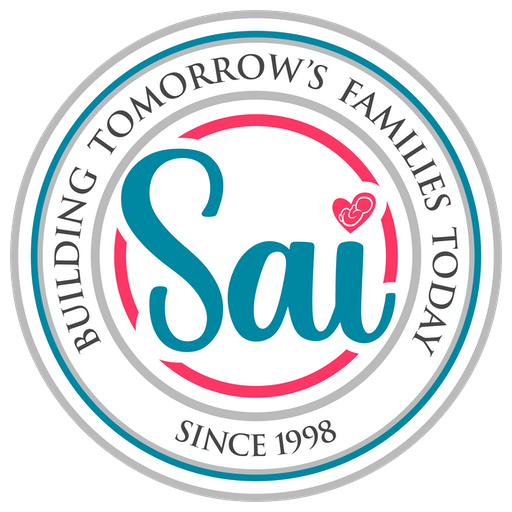When it comes to starting or expanding a family, surrogacy and adoption often come up as two viable options. Though both paths lead to the joy of parenthood, they differ significantly in process and experience. Understanding these differences can help you make an informed decision that’s right for your family.
Surrogacy involves a surrogate or Gestational Carrier carrying a child for intended parents, often using the parents’ genetic material. Adoption, on the other hand, means legally taking in a child who isn’t biologically yours. Each option has its unique set of legal, emotional, and financial considerations. Let’s dive into what sets them apart and what you should know before making your choice.
Understanding Surrogacy
Surrogacy offers a way for individuals and couples to have a child using a surrogate or Gestational Carrier. Often, this involves the intended parents’ genetic material.
Types of Surrogacy
Surrogacy includes two primary types:
- Gestational Surrogacy: Involves IVF (in vitro fertilization) where an embryo from the intended parents or donors is implanted into the surrogate. The surrogate has no genetic connection to the child.
- Traditional Surrogacy: Uses the surrogate’s egg, making her the biological mother. Fertilization occurs via artificial insemination with the intended father’s or a donor’s sperm.
Legal Aspects of Surrogacy
Surrogacy laws vary by state and country. Contracts must outline parental rights, financial arrangements and health responsibilities. Legal counsel is crucial to navigate state-specific surrogacy laws and ensure both parties’ interests are protected.
Emotional Considerations in Surrogacy
Surrogacy can be an emotional journey for all involved. Intended parents often experience joy and anxiety during the process. Surrogates may develop emotional bonds with the baby. Professional counseling supports managing these emotions and maintaining clear boundaries.
Understanding Adoption
Adoption involves legally taking in a child who is not biologically related to the adoptive parents. It’s a life-changing decision affecting everyone involved.
Types of Adoption
Adoption can occur through different channels. These include:
- Domestic Adoption: Adopting a child from within the same country.
- International Adoption: Adopting a child from a foreign country.
- Private Adoption: A direct arrangement between the birth parents and adoptive parents, often facilitated by an attorney.
- Foster Care Adoption: Adopting a child from the foster care system after they cannot return to their birth family.
- Kinship Adoption: Adopting a child by a relative or close family friend.
Legal Aspects of Adoption
Adoption involves several legal requirements. Prospective parents need to:
- Complete a Home Study: An evaluation of the adoptive family’s home environment.
- Obtain Consent: Legal consent must be obtained from the biological parents, unless their rights have been terminated.
- Attend Court Hearings: Court approval is required to finalize the adoption.
- Adhere to State or Country Laws: Each region has specific laws governing adoption processes and requirements.
- Bonding: Building a strong emotional connection with the adopted child, which might take time.
- Identity: Addressing the child’s need to understand their biological roots.
- Adjustment: Helping the child adjust to a new family environment.
- Support Networks: Utilizing counseling and support groups to navigate the emotional complexities of adoption for both parents and the child.
Key Differences Between Surrogacy and Adoption
Compare and contrast surrogacy with adoption to help intended parents make informed decisions.
Biological Connection
Surrogacy often involves a genetic link between one (or both) of the intended parents and the child. In gestational surrogacy, the child has no genetic ties to the surrogate. Instead, intended parents use their genetic material, making the connection clear and direct. Traditional surrogacy introduces complexity as the surrogate uses her egg, making her the biological mother.
Adoption lacks this biological link. Adoptive parents gain legal and emotional parenthood without contributing genetically. This difference holds significant emotional and identity implications for all parties involved.
Legal Processes
Surrogacy requires meticulous legal preparation. Contracts must outline parental rights, surrogate responsibilities, financial arrangements, and medical plans. Laws vary significantly by state and country, adding complexity. Legal assistance becomes essential to ensure compliance and protection for all involved.
Adoption, on the other hand, involves a detailed legal pathway distinct from surrogacy. Prospective parents must complete a home study, get consent from biological parents, and attend court hearings. Domestic and international adoptions have different legal requirements, but both demand thorough documentation and adherence to specific laws.
Costs Involved
Surrogacy typically incurs higher costs compared to adoption. Expenses include medical procedures, surrogate compensation, legal fees, and agency costs. The total can range from $100,000 to $150,000 or more, depending on circumstances.
Adoption tends to be more affordable, though costs still vary. Domestic adoptions range from $20,000 to $50,000; international adoptions may reach $40,000 or more. Foster care adoptions are generally less costly, often involving minimal fees.
Timeframes
Surrogacy timelines can vary based on multiple factors. Typically, the process takes 15 to 18 months, including matching with a surrogate, legal procedures, medical treatments, and the pregnancy. Delays may occur due to legal hurdles or medical issues.
Adoption time frames also vary but commonly range from several months to several years. Factors include type of adoption (domestic, international, private, foster care), legal requirements, and matching with a child. For instance, international adoptions often face extended timelines due to cross-border legal complexities.
For more detailed insights, visit Surrogate Alternatives.
Pros and Cons of Surrogacy
Surrogacy offers a unique path to parenthood, distinct from adoption. Each option carries its own set of advantages and challenges.
Pros
Genetic Connection: Surrogacy often allows intended parents to have a biological connection with the child. In gestational surrogacy, parents use their genetic material, making the child biologically theirs.
Control Over Pregnancy: Intended parents can monitor the pregnancy. They can choose the surrogate, follow medical updates, and possibly be present during prenatal appointments, providing reassurance about the baby’s health.
Legal Protections: Surrogacy agreements clearly define parental rights and surrogates’ responsibilities. Contracts include financial arrangements, medical care, and relinquishing parental rights, reducing legal uncertainties.
Customizable Experience: Surrogacy offers customizable options. Intended parents can help decide factors like prenatal care and diet to ensure the pregnancy aligns with their preferences.
Cons
High Costs: Surrogacy involves significant expenses. Medical procedures, legal fees, and surrogate compensation can total between $125,000 and $175,000, making it less accessible for many families.
Emotional Challenges: Both parties may face emotional challenges. Intended parents might deal with anxiety about the pregnancy, while surrogates could experience emotional bonds with the baby that they need to navigate post-birth.
Legal Complexities: Surrogacy laws vary widely. Some states have favorable surrogacy laws, while others may not recognize surrogacy agreements, creating potential legal hurdles that require professional legal guidance.
Medical Risks: Like any pregnancy, surrogacy carries medical risks. Surrogates may face complications during pregnancy or delivery, necessitating comprehensive medical screenings and ongoing prenatal care to mitigate these risks.
Pros and Cons of Adoption
Adoption, a life-changing decision, offers unique benefits and challenges to those considering it. Here are some detailed pros and cons.
Pros
- Providing Stability: Adoption provides a permanent, loving home to children in need. Examples include children from foster care and international orphanages.
- Variety of Options: Various types of adoption—domestic, international, private, foster care, and kinship—cater to different needs and preferences.
- Established Legal Frameworks: Detailed legal pathways ensure clarity and protection for all parties involved. Completed home studies and court approval safeguard the child’s well-being.
- Support Networks: Numerous support groups and resources assist adoptive families. Resources include counseling services and community groups.
- Financial Assistance: Adoption from foster care often incurs lower costs. State subsidies and tax credits may be available to ease financial burdens.
- Lengthy Process: Adoption timelines can range from several months to years, depending on the type and jurisdiction. This unpredictability may cause stress and anxiety.
- Emotional Complexities: Both parents and children may face challenges in bonding and identity. Counseling is essential to navigate these emotions.
- Legal Requirements: Compliance with extensive legal procedures can be daunting. The necessity to adhere to state and federal laws adds complexity.
- Unknown Backgrounds: Adoptive parents might have limited information about the child’s medical and genetic history. This gap can affect future healthcare decisions.
- Potential for Disruption: Biological parents might change their minds during certain adoption processes. Cases in private and open adoptions exemplify this possibility.
Understanding these pros and cons can guide intended parents in making informed decisions about adoption.
Choosing between surrogacy and adoption is a deeply personal decision that depends on various factors unique to each family. Both options offer incredible opportunities to build a loving family but come with their own sets of challenges and rewards.
It’s crucial to consider the legal, emotional, and financial implications of each path. Consulting with professionals and support networks can provide valuable guidance. Ultimately, the best choice is the one that aligns with your family’s needs, values, and circumstances.
Whatever route you decide to take, the journey to parenthood is filled with moments of joy and fulfillment.






